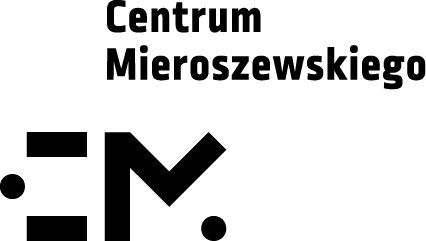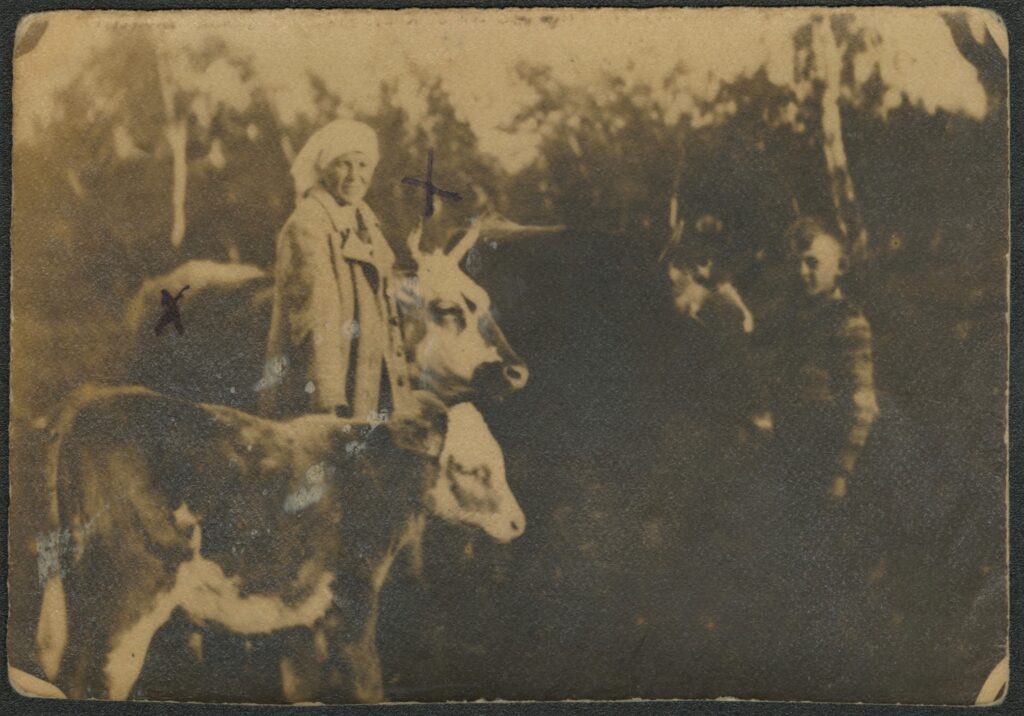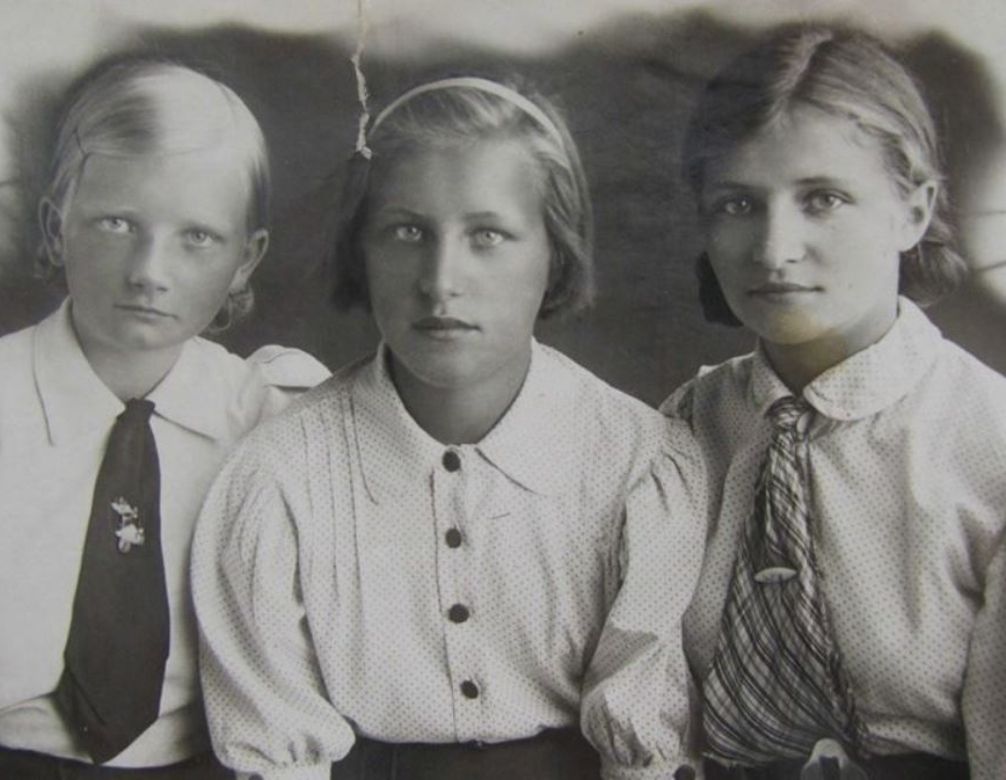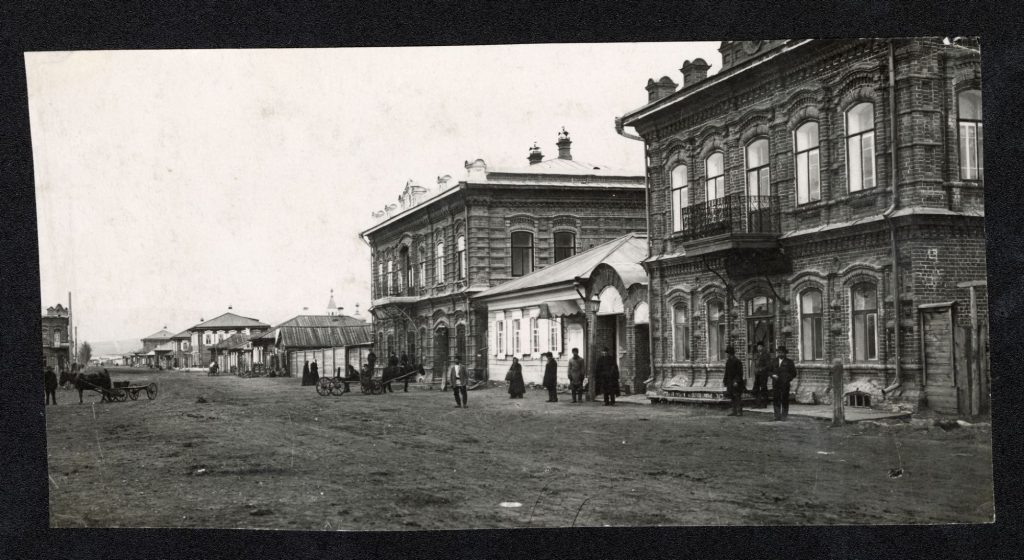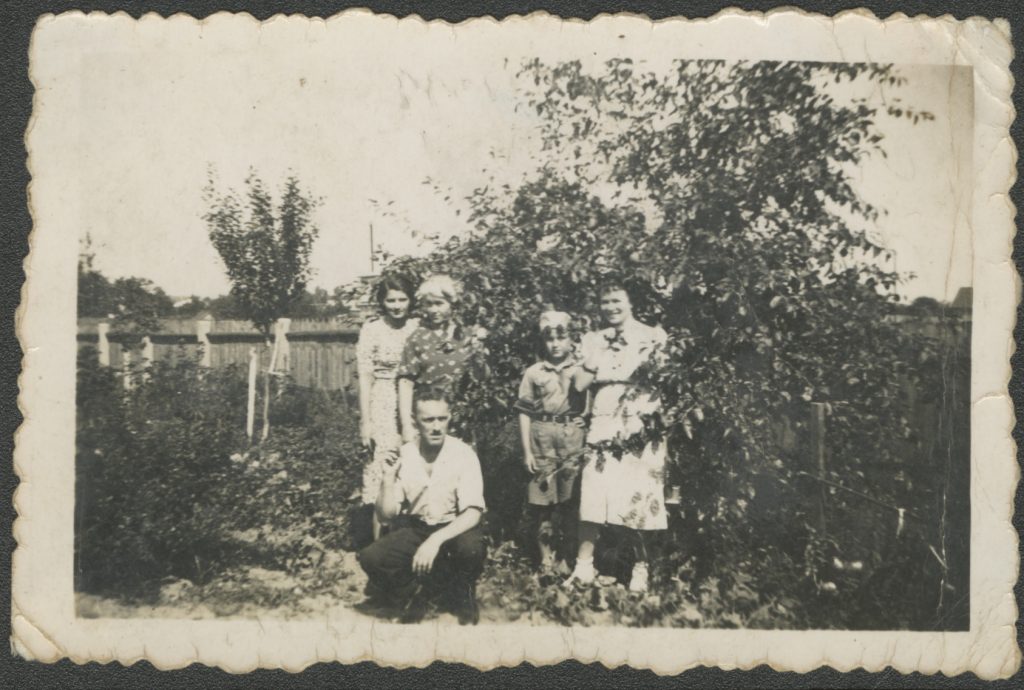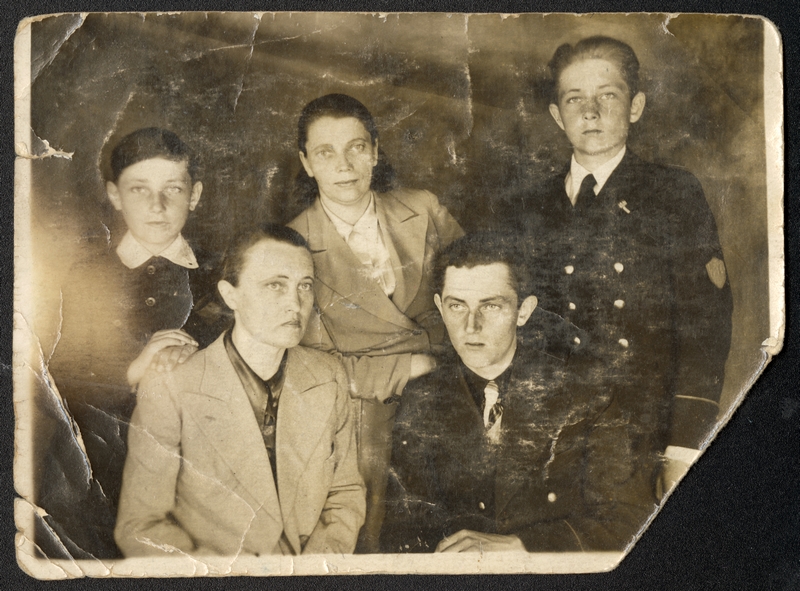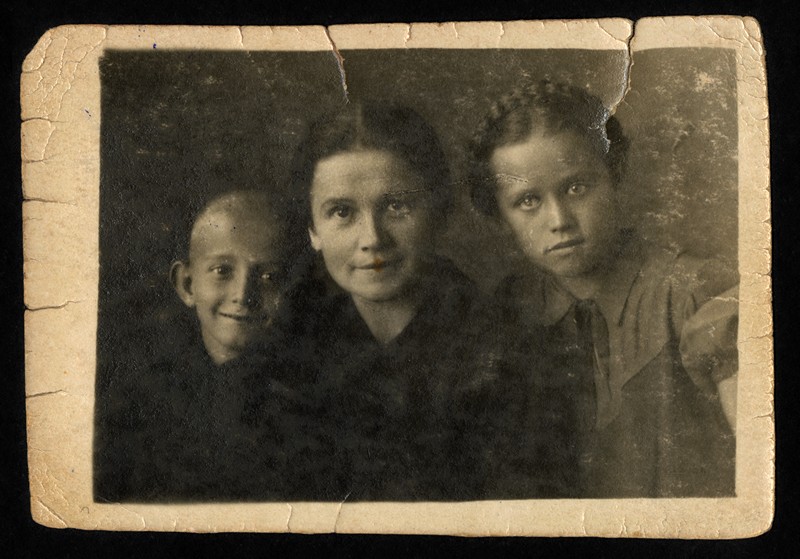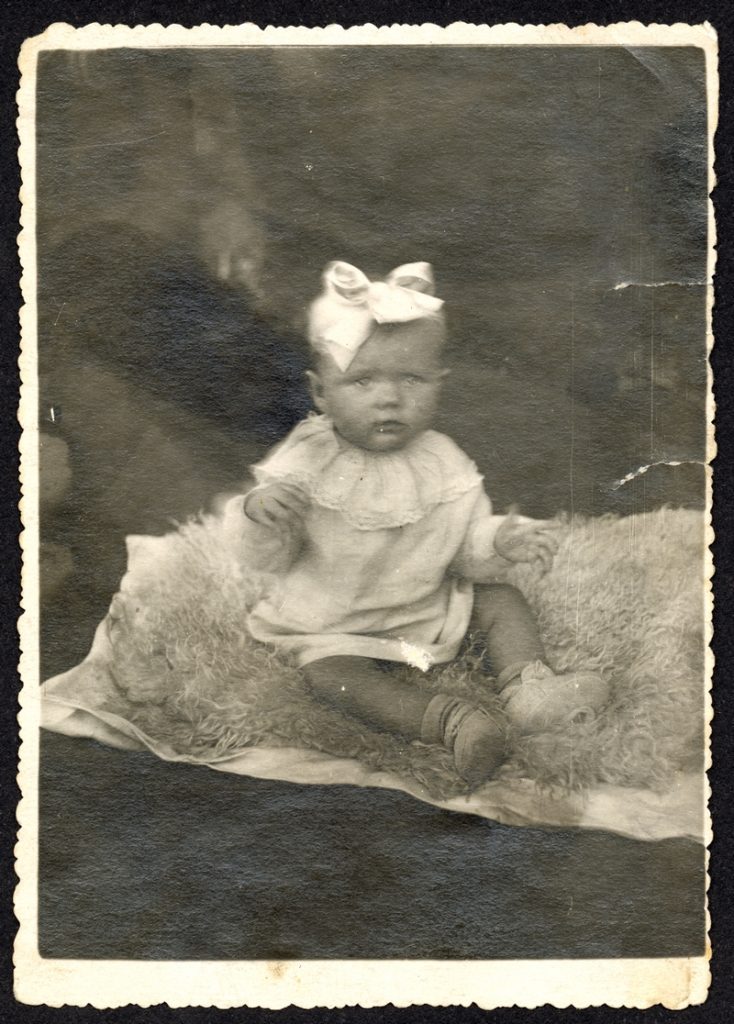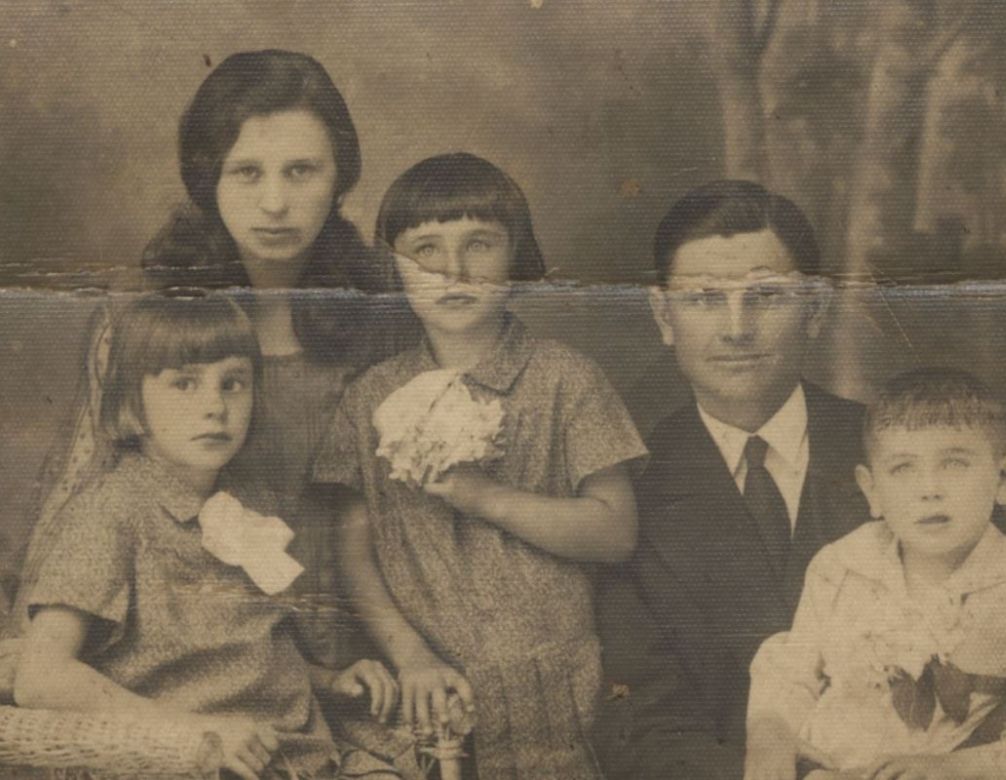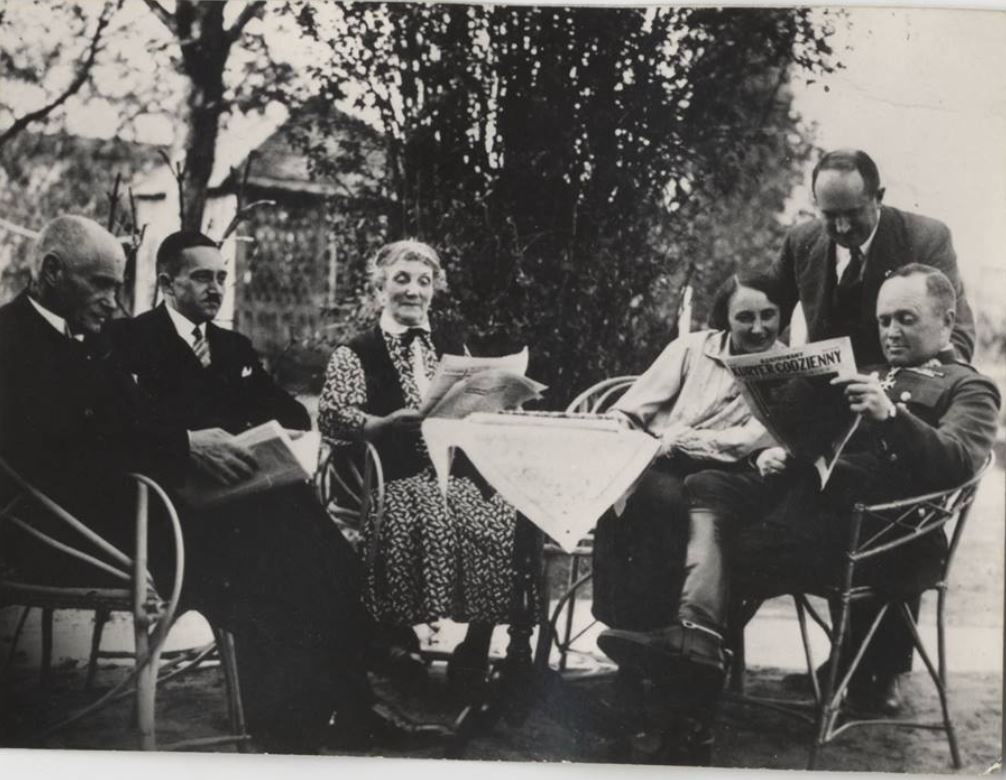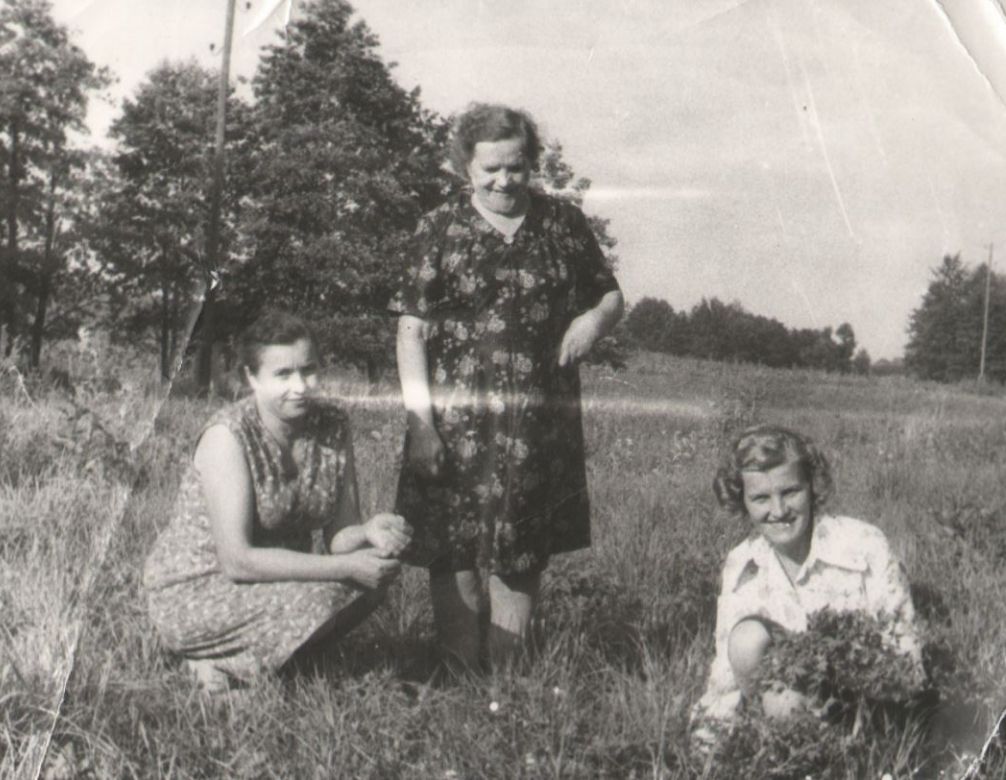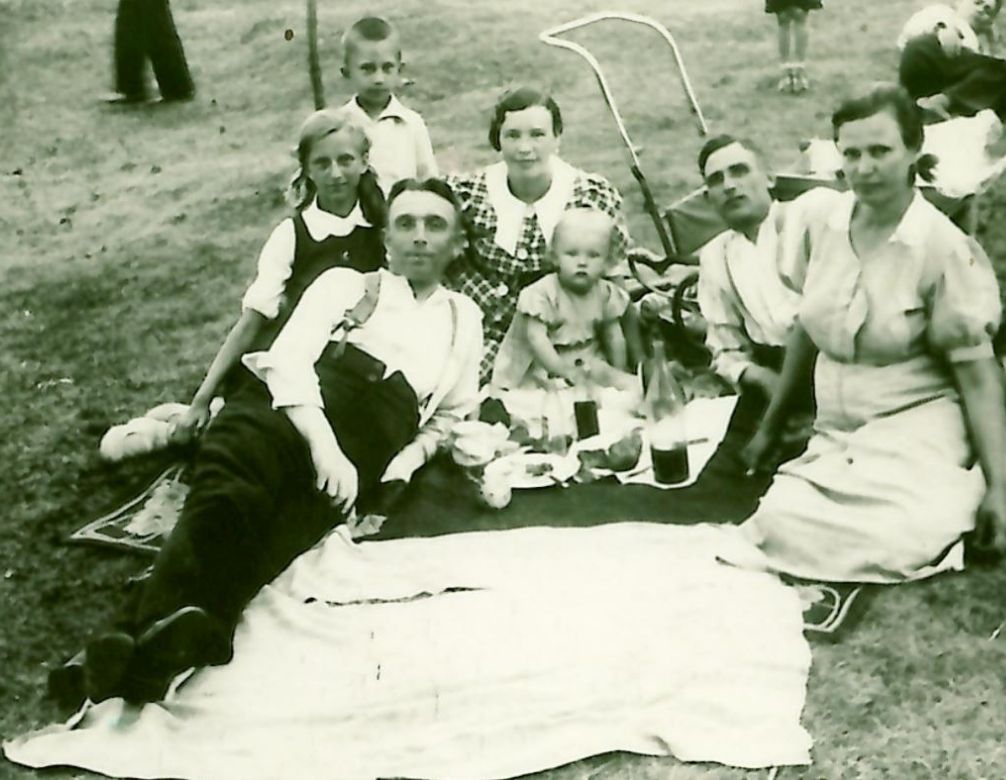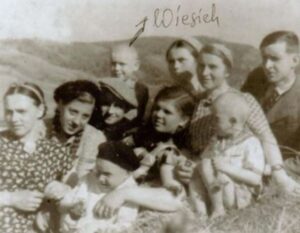
Employees of the Polish Orphanage in Bolshaya Yerba with their children (second from right Maria Mroziewska), around 1945. From the Sybir Memorial Museum collection.
In June 1941, Maria Mroziewska and her four children were deported from Krasnoborek (Sztabin commune) to Bolshaya Yerba in the Krasnoyarsk Krai. She worked for a year and a half at a kolkhoz and then as a cook at the Polish Orphanage. The family fully reunited in Poland in 1946.
“Finally, March 1946. Notices arrive that we are returning to Poland. Everyone gets a repatriation document. Immense joy. First leave the families with children who worked at the kolkhozes and some employees of the Polish Orphanage (…). We say goodbye to the Russians. Simple, kind-hearted people hug us, cry and say: ‘Wy uzhe dozhdalis svabody, a kagda my dazhdyomsia?’ [You have already lived to see freedom. And when will we live to see it?]. Both we and they had waited for this moment for a very long time (…). Poles came from the farthest corners (…). At Son station, the tyelatniki (cattle) wagons stood prepared. They were decorated with twigs of greenery (it was spring, after all) and banners ‘We are returning to you, Motherland’. The train starts and the song Boże, coś Polskę [God, Thou Who Poland] plays again. We leave, this time in open carriages. We are not accompanied by the NKVD. On the way, we see the cities of Novosibirsk, Tomsk, Omsk. We pass the Urals, finally Europe. We are in Moscow. We wait standing here at the Belorussian Railway Station for three days. There are no traces of war in Moscow. The ladies working at the Polish Embassy in Moscow organise an excursion for us, children returning from Siberia. We take the underground, see Red Square. (…) We move on. Finally, the border. Brest – last check of repatriation cards. We hear our mother tongue at the station. We are finally in the country after so many years of wandering. But we were sentenced to 20 years in exile. God moves mysteriously. We are in Białystok, at the Repatriation Office, from where they distribute us to our family homes. The farm is destroyed, the father is gone, there is nothing. Our family and neighbours help us a little. And so began our life back in the Homeland (…).”


